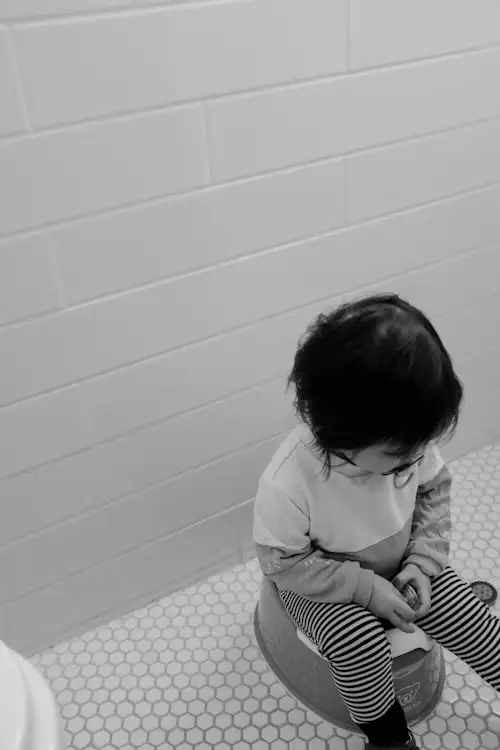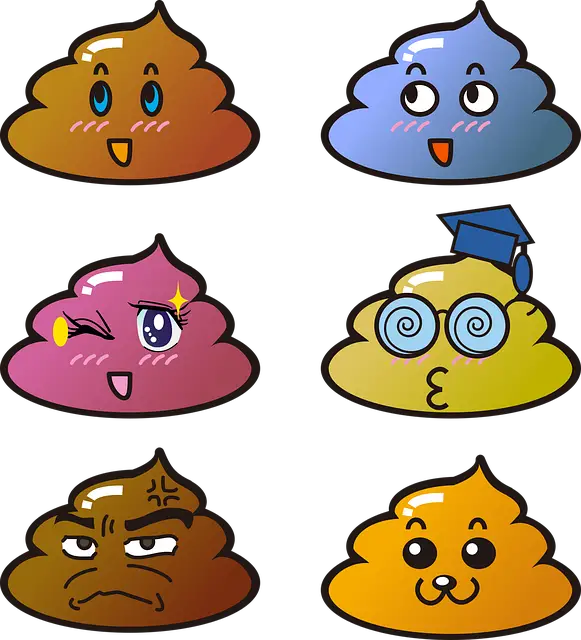A Parent’s Guide on Unraveling and Addressing Infant Green Poop

Introduction: As a new parent, it’s natural to be concerned about your baby’s health, especially when it comes to their bowel movements. While variations in stool color are common in infants, green poop can sometimes cause alarm. However, understanding the potential causes and knowing how to address them can help ease your worries and ensure your baby’s well-being.

Page Contents
A Parent’s Guide on Unraveling and Addressing Infant Green Poop

5 Causes of Green Poop in Infants:
- Dietary Factors: One of the most common reasons for green poop in infants is dietary factors. Breastfed babies may have green poop if the mother consumes certain foods high in chlorophyll, such as leafy greens or food dyes. In formula-fed babies, green poop can occur due to iron-fortified formula or a rapid transit time through the digestive system.
- Infection or Illness: Occasionally, green poop in infants can be a sign of an infection or illness, particularly if accompanied by other symptoms such as fever, vomiting, or diarrhea. Infections like gastroenteritis or a stomach bug may lead to changes in stool color.
- Teething: Teething can sometimes disrupt a baby’s digestive system, leading to changes in stool color and consistency. While green poop alone is not typically a sign of teething, it may coincide with other teething symptoms such as increased drooling or irritability.
- Medications or Supplements: Certain medications or supplements given to infants, such as antibiotics or iron supplements, can alter stool color and consistency. If your baby is taking medication, consult with your pediatrician about potential side effects.
- Digestive Issues: In rare cases, green poop in infants can indicate underlying digestive issues such as a milk allergy, lactose intolerance, or malabsorption disorders. These conditions may require further evaluation and management by a healthcare professional.
Addressing Green Poop in Infants:
- Monitor Symptoms: Pay attention to any accompanying symptoms your baby may be experiencing, such as fever, vomiting, or changes in behavior. If green poop is accompanied by other concerning signs, contact your pediatrician for guidance.
- Review Diet: If you are breastfeeding, consider whether your diet includes foods that could contribute to green poop in your baby. Limiting or avoiding certain foods known to cause changes in stool color may help normalize bowel movements.
- Check Formula: If your baby is formula-fed, consider switching to a different formula that is less likely to cause green poop. Speak with your pediatrician before making any changes to your baby’s feeding regimen.
- Maintain Hydration: Ensure your baby is adequately hydrated, especially if they are experiencing diarrhea or vomiting along with green poop. Offer frequent breastfeeds or formula feeds and monitor their urine output.
- Seek Medical Advice: If you are unsure about the cause of your baby’s green poop or if it persists despite dietary adjustments, consult your pediatrician. They can evaluate your baby’s overall health and provide personalized recommendations based on their specific needs.
No Need for Parents to Fret
In most cases, there is generally no need for parents to fret over their infant’s green poop. Green poop in infants is usually a benign and temporary occurrence with various potential causes, many of which are harmless and do not require medical intervention. Closely monitoring is essential as well.
4 Worst Scenarios
However, there are a few scenarios where green poop might warrant closer attention:
- Accompanying Symptoms: If green poop is accompanied by other concerning symptoms such as fever, vomiting, diarrhea, or lethargy, it may indicate an underlying issue that requires medical evaluation. These symptoms could be indicative of an infection or illness that needs to be addressed by a healthcare professional.
- Persistent or Severe Changes: While occasional instances of green poop are normal, persistent or severe changes in stool color, consistency, or frequency may warrant further investigation. If your baby consistently has green poop over an extended period or if the green poop is accompanied by other unusual symptoms, it’s advisable to consult with your pediatrician to rule out any underlying medical conditions.
- Failure to Thrive: If green poop is associated with poor weight gain, slow growth, or failure to thrive, it could be a sign of an underlying digestive issue or nutritional problem that requires medical attention. In such cases, a thorough evaluation by a healthcare provider is essential to identify and address any underlying concerns.
- Parental Concerns: Parents’ concerns about their infant’s health should always be taken seriously. While green poop is often benign, parental intuition can sometimes detect subtle signs of an underlying issue that may not be immediately apparent. If parents are worried or unsure about their infant’s green poop, it’s perfectly reasonable to seek guidance from a healthcare professional for reassurance and peace of mind.
Overall, while green poop in infants is usually nothing to worry about, it’s essential for parents to trust their instincts and seek medical advice if they have any concerns about their baby’s health. A pediatrician can provide personalized guidance and support, helping parents navigate any potential issues with confidence and reassurance.


7 Considerations and Appropriate Foods to Feed an Infant
The appropriate foods to feed an infant can vary depending on factors such as age, development, and individual dietary needs. Here are some general guidelines for feeding infants in different scenarios:
- Breastfeeding: Breast milk is the ideal food for infants, providing essential nutrients, antibodies, and hydration. For infants exclusively breastfed, there’s typically no need to introduce additional foods until around six months of age, as breast milk provides all the necessary nutrients for optimal growth and development.
- Formula Feeding: If breastfeeding is not possible or chosen, commercial infant formula provides a suitable alternative. Formulas are designed to mimic the composition of breast milk and provide essential nutrients for infant growth and development. Parents should follow the instructions provided by the formula manufacturer for preparation and feeding.
- Introducing Solid Foods: Around six months of age, infants can begin to transition to solid foods alongside continued breastfeeding or formula feeding. Parents can start with single-ingredient purees of fruits and vegetables, such as apples, bananas, sweet potatoes, and peas. These foods should be cooked, mashed, or pureed to a smooth consistency to prevent choking.
- Allergy Prevention: When introducing solid foods, parents should be mindful of potential allergens and introduce them one at a time, waiting several days between new foods to monitor for any signs of allergic reactions. Common allergenic foods include peanuts, eggs, dairy, wheat, soy, fish, and shellfish. Speak with a pediatrician if there is a family history of food allergies or if you have concerns about introducing allergenic foods.
- Balanced Diet: As infants transition to a varied diet of solid foods, parents should aim to provide a balanced diet that includes a variety of fruits, vegetables, whole grains, protein sources (such as lean meats, poultry, fish, eggs, tofu, and legumes), and healthy fats (such as avocado and olive oil). Offer a mix of textures and flavors to support oral motor development and sensory exploration.
- Hydration: Alongside solid foods, infants still require breast milk, formula, or water for hydration. Offer water in a sippy cup or open cup as needed, especially during meals and throughout the day, to prevent dehydration.
- Consultation with Healthcare Providers: It’s essential for parents to consult with their pediatrician or a registered dietitian for personalized guidance on feeding their infant, especially if there are specific dietary concerns, medical conditions, or developmental considerations to address. Healthcare providers can offer tailored recommendations and support to ensure infants receive adequate nutrition for optimal growth and development.
Conclusion:
While green poop in infants can be concerning for parents, it is often a harmless and temporary occurrence. By understanding the potential causes and knowing how to address them, you can navigate this aspect of infant care with confidence. Remember to trust your instincts and seek medical advice if you have any concerns about your baby’s health. With proper attention and care, most cases of green poop in infants resolve on their own without any long-term consequences.






